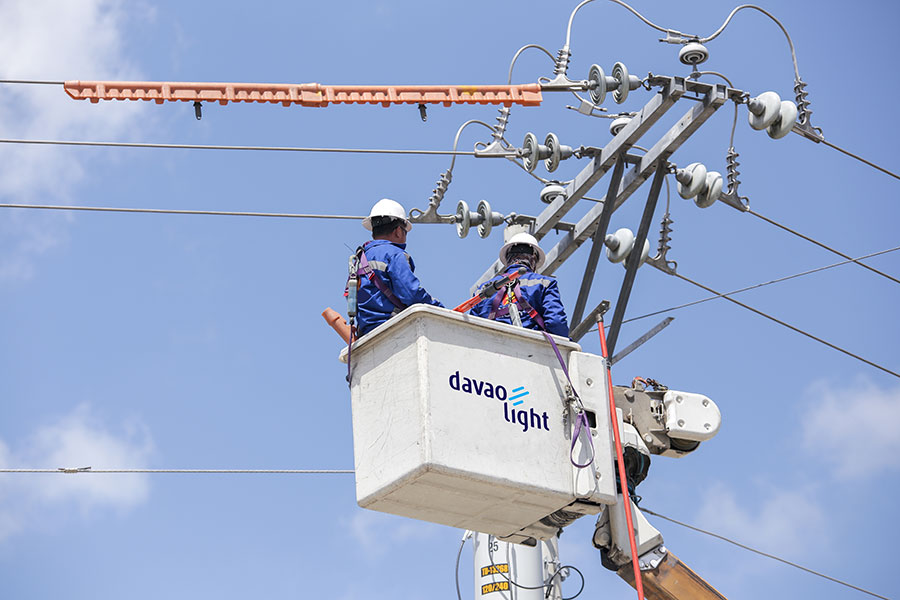This article by AboitizPower President and CEO Emmanuel “Manny” V. Rubio first came out in the INQUIRER.net Brandroom on April 26, 2023. In this first installment of a two-part feature about his thoughts on the country’s energy future, the company chief shares how the demands of energy reliability, affordability, and sustainability are not a false trichotomy but more of a balancing act.
Earth Day is the best day to talk about Earth Day, when well-meant intentions for the planet are probably at an all-time high. Part of humanity’s efforts in dealing with climate change is in energy, which is relevant to the Philippines since its power sector accounts for 51% of national CO2 emissions, according to the Climate Transparency Report 2020. As someone who has been in the industry for many years and has a deep passion for the subject matter, I offer my two cents and attempt to explain how, even if that is the case, the country cannot afford an immediate and wholesale shift to a large share of renewable energy (RE) in the energy system.
In economics, the “Law of Unintended Consequences” posits that unintended consequences can actually make some programs more costly to the point that it makes it unwise to pursue regardless if it achieves its intended goal or even if it is well-meant. That is how I view the narrative of how a drastic adoption of renewable energy (RE) and the abandonment of thermal power plants is a necessary and urgent trade-off that must ensue. It is ripe with unintended consequences, especially in the context of a developing country like the Philippines. In an environment where the gap between power supply and demand is thin — which results in relatively higher electricity prices and risks of yellow or red alerts — the intermittency of RE already poses a concern. Moreover, we must consider that building more RE power plants represents opportunity costs in terms of, for example, lost agricultural lands. In that case, there should be a balance between food and energy production because solar farms are also built upon lands that may be good for agriculture.
A holistic approach to the energy transition — one that doesn’t trade-off our consumer’s spending power and the power grid’s stability that is crucial to economic growth — is a strategy that acknowledges how providing reliable, affordable, and sustainable electricity is not a false trichotomy, but more of a balancing act. It is one where solutions are tailor-fitted to a locality’s industrial outlook, financial standing, and ecological situation; all calibrated so that one does not significantly disadvantage the needs of the other.
Energy reliability is not negotiable. A sufficient and reliable supply of electricity is crucial in the retention of existing industries and the attraction of new ones, be it local or foreign. The progress of commerce, job growth, higher wages, urban and rural development, and even the production of basic human needs like food and clean water; these are just some of the things that won’t happen unless we have, at the very least, reliable baseload power in the grid. Unfortunately, RE sources like wind and solar power cannot be programmed on demand.
Energy reliability can also affect the fortunes of energy affordability. What is “affordable” is subjective, depending on the spending power of the individual, and that can be improved by increasing the size of the economy he partakes in. According to the World Bank, the Philippines has a gross domestic product (GDP) per capita of $3,460.50 as of end-2021, which is about one fourth the average global GDP per capita of $12,236.6. It targets to reach upper middle-income status by 2025, with growth targets ranging from 6-8% from 2023 to 2025. Moreover, even if the country’s gross national income (GNI) per capita improved to $3,640 in 2021, it still hasn’t touched the lower end of the upper middle-income threshold of $4,256. Expanding the economic pie — and thereby increasing opportunities for people to earn and/or have higher wages — will surely require reliable and cost-effective electricity.
On energy sustainability, while the Philippines should indeed be vocal in the issue of climate change, given its vulnerabilities to extreme natural events like heavy rain, floods, and droughts, it must be noted that it contributes less than half of one percent to global emissions. Not all countries are on equal footing to deal with the mitigation of CO2 emissions. While dealing with climate change is a worldwide effort, individual responsibility should be shared in proportion to how much a country contributes to global emissions. While full-on RE adoption is suitable for some countries, what is good, appropriate, and timely for the goose may not be so for the gander. Industrialization has already set sail for developed nations, while it has only begun for most of the developing world.
The hard truth is that the country’s current energy mix cannot be abandoned right away, simply because the Philippines needs the reliability and affordability of energy to deliver its fullest economic and human capital potential. Accordingly, the adoption of RE cannot happen right away. It has to be gradually and methodically nurtured, without sacrificing our aspirations for more prosperous lives for more than a hundred million Filipinos. However, do not mistake my arguments as pessimism. A new and better order of the Philippine energy system might just be on the horizon. Attempts have already been made to assess the viability of RE as a baseload source of energy. Evidently, innovations such as energy storage systems and emissions-capturing technology are already gaining ground, with people in the industry brainstorming on how to make these inventions more technically viable, cost-effective, and scalable. The future can be bright, as we not only expect better technology, but hopefully more capable scientists and engineers who will carry the torch.
Read more: https://business.inquirer.net/397571/earth-day-and-the-philippine-energy-future#ixzz80hVqO6Yf



